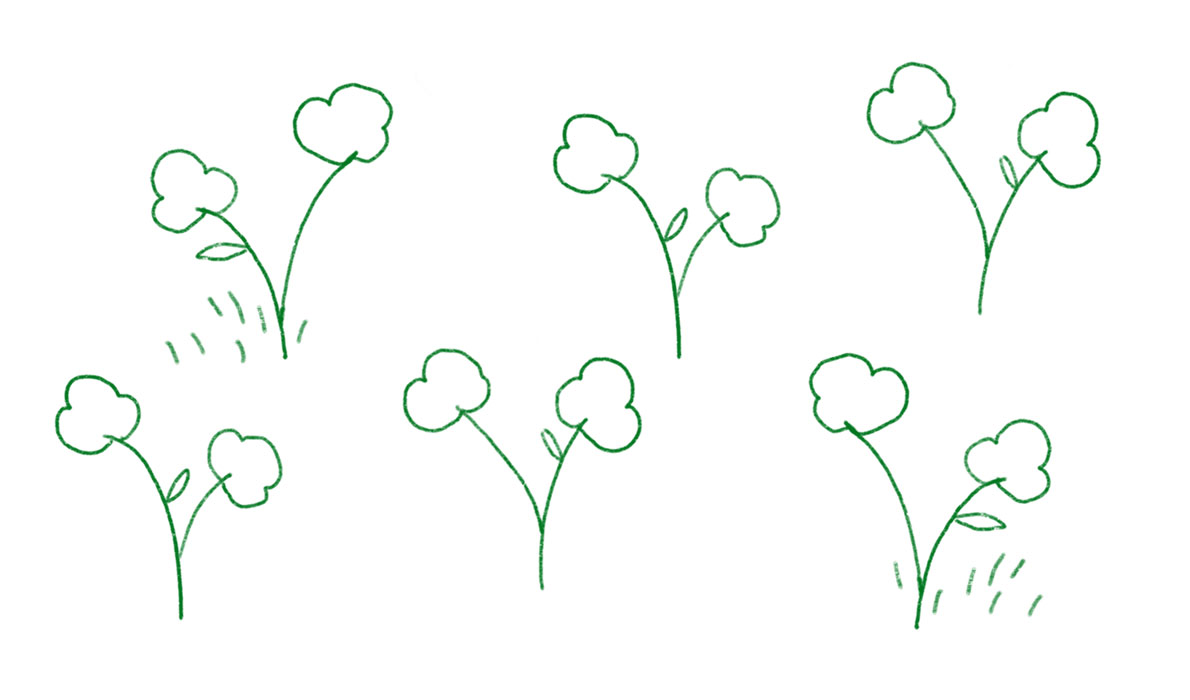Every new style in our collection has to meet rigorous criteria. First, it has to be a great idea that serves a purpose. Quality is paramount. It must fit well and be functional. Our entire collection is made of sustainable materials that are all traceable from fiber to final garment. Here are the sustainable materials we use today:

Organic cotton cultivation is based on long-term and sustainable methods. The cotton is grown without the use of harmful pesticides or fertilizers. Choosing organic cotton over traditionally grown cotton means making a choice that is better for cotton farmers as well as the environment.
These fibers are produced using wood pulp, derived from responsibly managed forests. The manufacturing of the fibers generates up to 50% lower emissions and water impact compared to generic viscose.
LENZING™ ECOVERO™ is awarded EU Ecolabel because it has a significantly low environmental impact throughout the lifecycle.

Lyocell is a cellulose fiber from eucalyptus and other fast-growing trees, which need only 5% of the water needed for cotton cultivation. We only use TENCEL™ lyocell from Lenzing because they guarantee that the raw material comes from certified and controlled wood sources and that the production of the fiber takes place in a closed system where water and solvents are reused indefinitely. The fiber is biodegradable and thus compostable.
Modal is a cellulose fiber made from beech. We only use TENCEL™ modal from Lenzing because they guarantee certified and controlled wood sources, and that they grow the trees near where the fiber production takes place, with controlled use and waste management of solvents and water. The fiber is biodegradable and certified by EU Ecolabel, which among other things guarantees it has a low climate impact throughout its lifecycle.

The merino wool we use is organic and GOTS certified (end product, Certified by Ecocert Greenlife, Licence no. 177019). It comes from sheep that have been raised on South American farms where they are treated well and not subjected to mulesing because the farmers have a holistic perspective on animal welfare and the environment. In addition, fewer and better chemicals are used in the production process, from the cleaning of the fibers to the dyeing of the yarn. In other words, the best wool we could find.
For our tights and seamless styles we use Q-nova® a yarn made from recycled industrial waste. For our swimwear, we use ECONYL® yarn, a 100% regenerated nylon fiber made from pre and post-consumer waste like fishing nets and other nylon waste. Both materials are certified according to GRS (Global Recycle Standard). By using fabrics made of recycled materials we are helping to reduce landfills while saving the planet's natural resources of crude oil.

For sportswear, we use GRS-certified recycled polyester knitted and treated for high performance. With the We aRe SpinDye® method, color pigments are integrated into the melted polyester fiber without the use of water, in this way there are many resources saved which normally is used in color baths.
- 90% less chemical usage
- 75% less water usage
- 30% less energy usage
- 30% less CO2 imprint
The results above are stated in the We aRe SpinDye® certificate, calculated from raw material to readymade fabric. Validated by RISE according to ISO 14040.
LEFTOVER MATERIAL
Both when we design and cut our garments, we strive to maximize the use of materials and reduce the proportion of wasted fabric. But sometimes there is fabric left over, from our own or others' production. In that case, we like to get creative and investigate how we can design new, smart products from it - rather than letting it go to waste. By using already produced material, we remove the production stage that has the greatest environmental impact while conserving the planet's resources.
